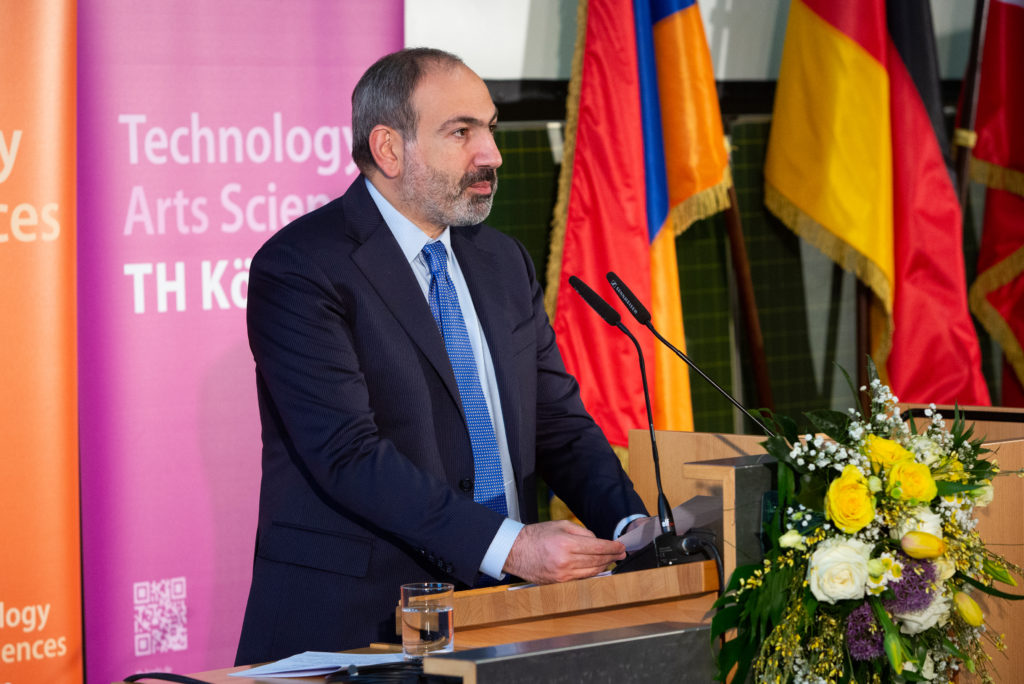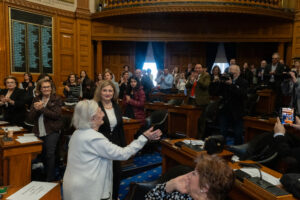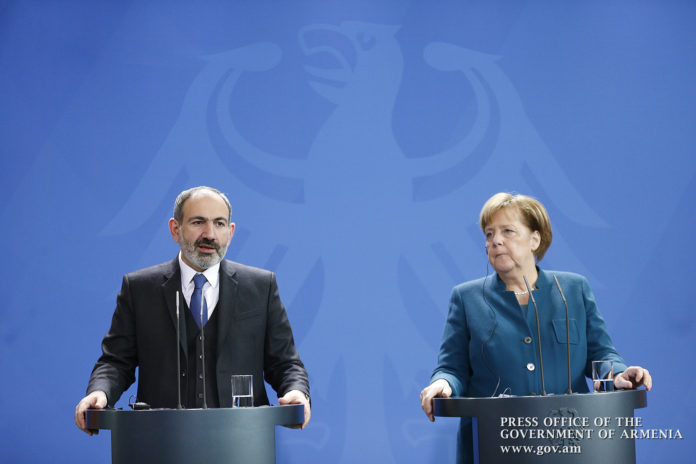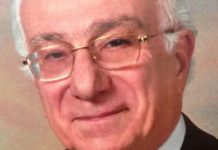COLOGNE, Germany — When Armenian Prime Minister Nikol Pashinyan and his wife Annas Hakobyan paid an official visit to Germany last week, their first stop was not the capital city but Cologne. This may have come as a surprise to some, but there were good reasons for it. As Pashinyan explained to a gathering of members of the Armenian community on January 31, “Cologne is the capital of the Armenians of Germany, and it was not accidental that we started the official visit here.” The meeting took place at the Prelacy Diocese of the Armenian Apostolic Church, which is the seat of the church in Germany.

31.01.2019
copyright by Michael Bause
+++ NO MODEL RELEASE +++
+++ No Property Release +++
Ab dem Zeitpunkt der ordnungsgemäßen Lieferung des Bildmaterials durch den Urheber ist der Bildnutzer für dessen sachgemäße Verwendung verantwortlich. Der Bildnutzer trägt die Verantwortung für die Betextung sowie die sich aus der konkreten Veröffentlichung ergebenden Sinnzusammenhänge.
In his address that evening, in Armenian, Pashinyan touched on themes he was to develop in greater depth in other meetings. First was the new role Armenia has come to play since the revolution; it has become “more visible and more audible for the civilized world,” he said. Sometimes the new situation creates embarrassment, he said, “when representatives of different powerful civilized countries … tell us straight away … that they have much to learn from us.” One should take due note of such statements, when they are repeated again and again, he said. “Yes, we have problems in many areas, but there is a sphere in which we are truly considered a leader in the world today. I mean the building of a society free of violence without resorting to violence. For this very reason,” he added, “we can say yes, we are a country of great importance in the world.” Citing poet Paruyr Sevak, he said Armenians do not put themselves above anyone else. However, “we should understand what we have, what we say and do in the modern world. These tasks are positive, they are endowed with universal logic, and they are interesting to the world and civilization.”
The revolution that took place, he said, was the result of a collective effort, an example of nationwide cooperation. Now that free and fair elections have been held, and acknowledged at home and abroad, these “political transformations need to be translated into economic changes.” This, the central message of his visit, means moving from a political to an economic revolution, to improve living standards for all, and eliminate poverty. To achieve this requires the contribution of all, citizens and compatriots abroad. He stressed the role of the single individual: “Who can change the world? Who can change reality? Individuals are the ones to do that. The 21st century belongs to those who believe in their strength. The time has come for us and our people to believe in our own strength.”

In dialogue with the community, Pashinyan addressed a question related to the elimination of the Diaspora Ministry, explaining that his staff would have an ambassador tasked with special responsibilities for the diaspora. The ministry itself should be reorganized, he said, with redistribution of functions, and “only one agency should be involved in each function.” He cited the example in education, where one ministry would provide textbooks to Armenian schools abroad, while another would provide teacher training. Now, he said, “the Ministry of Education and Science should take care of education,” and the aim should be to bring educational policies and culture within Armenia and among the Diaspora into harmony.
Khachkars and Computers in Cologne
Earlier in the day, Cologne’s Mayor Henriette Reker had received the prime minister at City Hall, with words of admiration and praise for the accomplishments of the peaceful Armenian revolution. “You are raising hopes in all those who stand for the promotion of democracy in the world,” she said. Thanking her, Pashinyan voiced his commitment to following up the political evolution with economic improvements, and hoped that Germany investments would contribute to the process. Pashinyan also expressed his appreciation for the German Bundestag’s recognition of the genocide in 2016. As Reker emphasized, the city of Cologne had contributed to the commemoration of the victims with a khachkar, an important step in the “process of recognition and condemnation of the Armenian Genocide,” which must be continued, “in a bid to develop a global memory policy.” In response, Pashinyan said recognition was “crucial in terms of preventing future genocides,” and that this constituted a key aspect of Armenian foreign policy.











